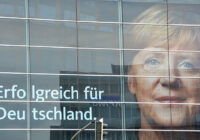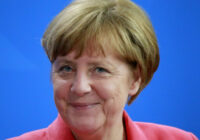Political upheaval threatens a breakup of the EU and shaky Italian banks mean a major financial crisis cannot be ruled out in the New Year.
While most eyes are on the dramatic shifts possible for US economic policy as Donald Trump has been sworn in as president, similarly deep political currents are on the move in Europe. Indeed, the state of economic and political affairs there mirrors the seismic shift in the United States in many ways.
“In the US, the wave of populism has taken the form of the Republican Party. In Europe, it’s mostly manifested itself through the growth of extremist parties both on the left and the right,” explains Mauro Guillén, Wharton international management professor and director of The Lauder Institute.
This year, Europe’s economic growth will depend to an unusual degree on political developments, with three key elections coming up. Ground zero could turn out to be Italy. “Italy is where they were 20 years ago—they haven’t grown,” says Franklin Allen, an emeritus Wharton finance professor and executive director of the Brevan Howard Centre at Imperial College in London. Such sluggishness could have major consequences for Italian banks, whose growing trove of nonperforming loans have the potential to bring down banks all over Europe, he adds.
But one silver lining is the potential growth of European exports due to a stronger dollar, sparked by the US Federal Reserve’s shift to a more hawkish stance that sees interest rates rising. Guillén notes: “The rising value of the dollar represents an opportunity as eurozone exports become more competitive.”
The wrinkle, of course, is Trump’s unpredictability. His public comments about the US dollar as being too strong compared to the Chinese yuan promptly sank the greenback, according to MarketWatch. The news site noted that Trump’s stance deviates from longstanding policies on the dollar adopted by prior administrations: “The strong dollar policy — a mantra of Democratic and Republican administrations for more than two decades — may be headed for the scrap heap.” So, growth in Europe from exports might not be a done deal.
Another problem for Europe is the coming set of unknowns on the political realm. “All countries are on a bit of a cliff,” says Olivier Chatain, strategy and business policy professor at the HEC business school in Paris and an academic senior fellow at Wharton’s Mack Institute for Innovation Management. “You have a risk of self-perpetuating political instability that can result in a self-reinforcing cycle of slow economic growth.”
Major leadership elections in the Netherlands, France and Germany in 2017 could indelibly change the course of the European Union (EU) as an economic entity. In 2016, both the United Kingdom and Italy saw the resignations of their prime ministers as a result of referendums, with the UK voting to leave the EU in a “Brexit” and Italy rejecting constitutional reform that would have reduced political instability and bureaucracy, according to the European Council on Foreign Relations.
While the US had a surprise upset by Trump and the UK experienced Brexit last year, Europe was spared any dramatic economic crisis. Wharton Finance Professor Joao Gomes explains says that 2016 presented no big problems and “wasn’t a bad year.” Most countries showed some growth. “Germany did very well. The UK didn’t do very badly. Italy didn’t do very badly. Spain had no government and did very well,” he said. “It could’ve been worse.” However, despite some European countries making some big political decisions, there has been no serious focus on the economy, which needs attention, Gomes says.
One positive note from the EU point of view was that 2016 ended with “no anti-euro governments in power,” Gomes adds. Given the major elections on tap—each with anti-European Union candidates as strong contenders—that may not be the case a year from now, he says. That includes Marine Le Pen, France’s far-right candidate who has taken the lead in the polls recently in the presidential race, according to The Daily Beast.
The Shape of Brexit
Probably the biggest shock in Europe last year was the UK vote to leave the EU. While the Brexit vote’s immediate consequence was the weakening of the pound to a 31-year-low against the US dollar, the long-term consequences remain to be seen. When British Prime Minister Theresa May invokes Article 50 of the Lisbon Treaty, which starts the process of withdrawing from the EU, formal negotiations will commence and could take two years. May pledges to pull the trigger at the end of March. However, much of the framework has yet to be decided, and trade deals between UK and the EU will have to be negotiated.
On January 17, May drew a proverbial line in the sand by indicating that after Brexit, the UK aims to fully control its immigration and regulation policies. That will almost certainly result in the United Kingdom leaving the EU’s single market entirely, with the European Union itself wanting few if any remaining ties. The UK would have to negotiate trade deals with individual nations in Europe.
Even before May’s comments, it seemed clear that the UK was likely headed for a tough time with the EU over Brexit. Chatain notes that other EU countries are not likely to let the UK exit smoothly with favorable conditions because it could tempt other members to exit, too. What is more, the UK has probably overestimated the willingness of governments in the EU, sore at Brexit, to keep the status quo in trade relations in some way.
 Allen also points out that the outcome of the French elections in the spring, and possibly an Italian election if it comes up in 2017, in part depending on the health of Prime Minister Paolo Gentiloni, could significantly affect the conditions for Brexit. “If the EU starts breaking up, then the other European leaders will try to introduce things that have consequences for Brexit,” says Allen.
Allen also points out that the outcome of the French elections in the spring, and possibly an Italian election if it comes up in 2017, in part depending on the health of Prime Minister Paolo Gentiloni, could significantly affect the conditions for Brexit. “If the EU starts breaking up, then the other European leaders will try to introduce things that have consequences for Brexit,” says Allen.
As big a move as Brexit appears to be, however, Allen points outs that “trade agreements aren’t as important as they used to be. Services are more significant in today’s economy. Most services take place over the internet and it’s not clear where the transactions take place.”
Italy’s Banks: The Elephant in the Room
In December 2016, the political carousel in Italy took another turn. Nearly 60% of the Italian voters rejected a referendum for constitutional reform, which would have reduced the size of its senate and given more powers to the prime minister with the goal of reducing bureaucracy and political gridlock. Anti-establishment political parties, like the populist Five Star Movement and the far-right Northern League, campaigned to defeat the referendum. For those favoring a strong EU, “The outcome in Italy was very bad,” notes Guillén. What happened in Italy reflected more of a dissatisfaction with the current government than with the reforms the government wanted to enact, explains Allen.
While the big story out of Italy recently is the country’s political upheavals, the situation in Italy’s troubled banking sector does not always get as much attention as referendums and elections, yet that is where the biggest potential economic risks lie.
About a fifth of Italian banks’ loans—nearly $400 billion—is considered nonperforming, according to a 2015 International Monetary Fund report. The figure accounts for 40% of all troubled loans in the eurozone. In a sign of how shaky the underpinnings are, the Italian government recently approved a multi-billion bailout of Monte dei Paschi di Siena, Italy’s third-biggest lender and the world’s oldest bank, after an unsuccessful attempt to raise investor backing.
The focus is now on Italy’s largest bank, UniCredit SpA., which is hoping to raise $14 billion in a rights issue and clean up its balance sheet by shedding $19 billion in non-performing loans, bundled into securities to be sold to investors. Some observers say this is potentially the key flashpoint in all of Europe. As “a very big bank with a major subsidiary in Germany,” Allen notes, “the Italian banking industry could potentially have a huge impact across Europe.” That subsidiary, HypoVereinsbank, is one of Germany’s largest banks by total assets.
With Germany’s second-largest bank—Deutsche Bank—struggling as well, it’s possible that the finance world could return to “where we were in 2008,” Allen says. “It’s still not that likely of an outcome, but it’s certainly a significant possibility.” Expect markets to closely watch how the UniCredit offering is received.
In other election developments in 2016, the vote on Austrian leadership dragged on. Pro-Europe forces ultimately prevailed when voters finally elected independent candidate Alexander Van der Bellum. “The Austrian outcome was good” for Europe, in Guillén’s view. However, the election wasn’t a smooth victory.
Last April, the first presidential runoff took place to decide on the two most popular candidates to go head-to-head in May 2016. The election result, where the pro-EU candidate would have narrowly won by 30,000 votes, was annulled by Austria’s highest court due to voting irregularities. In December 2016, the independent candidate won by 53.8%. “That was somewhat close. The far right had a very strong showing in the polls,” Allen points out.
Kick-off to Elections
The first major election in Europe in 2017 will take place in the Netherlands, in March. The populist, anti-European Party for Freedom has been winning the opinion polls, prompting the possibility of a “Nexit”—the Netherlands exiting the EU. While the structure of the Dutch coalition government would probably prevent such a scenario, the election nevertheless could test the waters for the subsequent French presidential elections.
The world will be watching as French citizens begin casting their ballots on April 23, which could have serious repercussions for the continuation of the eurozone. The first round of voting is open to several candidates and is not based solely on political affiliations. Le Pen is the leader of the National Front, who runs on an anti-European, anti-immigrant platform, and is expected to do well enough to progress to the next round on May 7, which will determine who will become the new French president.
Chatain predicts that former Prime Minister Francois Fillon likely will be the “viable candidate” to face Marine Le Pen and win. “Fillon isn’t too right wing but might be able to peel off voters from Le Pen. Fillon will be acceptable to a very large swatch of the right. His platform is not about exiting the EU. Le Pen is about destroying the EU.”
In the end, Chatain believes the center left and center right will support Fillon over Le Pen. Moreover, Le Pen cannot campaign as the next “new thing,” says Chatain. “Le Pen is not new to the political arena. She will be a candidate for the second time. Also, she is the [political] heir to her father. Claiming to be new will be much harder for her this time around. That’s the whole point of populism.” Such movements gain momentum with promises to upend the establishment.
Allen takes a different view. “Marine Le Pen has a good chance of winning,” he says. If Le Pen did prevail and France wants to leave the EU, “Brexit will be a minor problem” since France is a founding member of the eurozone and a core member of the European Union while [the] UK never even adopted the euro as its currency.
Le Pen’s popularity base is similar to Trump’s, as she reaches out to those feeling frustrated about their economic situation, observers pointed out. In 2016, France’s gross domestic product (GDP) growth hovered around 1%. “France’s economic outlook is gradually getting better after five years of a mess,” Chatain says. “Unemployment is starting to go down a little bit. It’s not a freefall. France is not yet causing too much economic uncertainty or instability.”
Germany’s Stalwart Leadership
The last foreseeable important vote in 2017 will be in September when Germany holds leadership elections, and Angela Merkel will campaign to become chancellor again. The German election is critical. “I can’t imagine anyone else besides Merkel” as chancellor, says Gomes. “The question is how far more right does her party have to go to quell the anti-immigrant attitudes that will come up during the campaign?”
Guillén notes that Europe is facing renewed uncertainty as the terms of Brexit will need to be negotiated, and elections in France and Germany could introduce new volatility. Add to the political turmoil the precarious state of Italy’s banking system—with a key test being the UniCredit offering— and one has the makings of a perfect political and economic storm.
The collapse of one or more Italian banks could trigger troubles elsewhere in the EU, and even affect Germany’s Deutsche Bank, as well as US financial institutions. Meanwhile, the exit of another country from the EU could lead to more countries leaving and possibly fracture the union even more. Politically, the trigger for change has been voter dissatisfaction with the establishment. “Things in Europe are changing,” Allen notes. “Before, the populist movement was growing, and now they’re winning.”
*[This article was originally published by Knowledge@Wharton, a partner institution of Fair Observer.]
The views expressed in this article are the author’s own and do not necessarily reflect Fair Observer’s editorial policy.
Photo Credit: European People’s Party
Support Fair Observer
We rely on your support for our independence, diversity and quality.
For more than 10 years, Fair Observer has been free, fair and independent. No billionaire owns us, no advertisers control us. We are a reader-supported nonprofit. Unlike many other publications, we keep our content free for readers regardless of where they live or whether they can afford to pay. We have no paywalls and no ads.
In the post-truth era of fake news, echo chambers and filter bubbles, we publish a plurality of perspectives from around the world. Anyone can publish with us, but everyone goes through a rigorous editorial process. So, you get fact-checked, well-reasoned content instead of noise.
We publish 2,500+ voices from 90+ countries. We also conduct education and training programs
on subjects ranging from digital media and journalism to writing and critical thinking. This
doesn’t come cheap. Servers, editors, trainers and web developers cost
money.
Please consider supporting us on a regular basis as a recurring donor or a
sustaining member.
Will you support FO’s journalism?
We rely on your support for our independence, diversity and quality.







